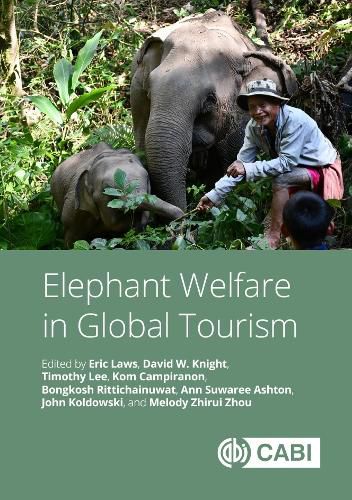Readings Newsletter
Become a Readings Member to make your shopping experience even easier.
Sign in or sign up for free!
You’re not far away from qualifying for FREE standard shipping within Australia
You’ve qualified for FREE standard shipping within Australia
The cart is loading…






At the centre of the elephant tourism industry lie two profound challenges: the delicate balance between income and compassion, and the severe threats to the survival of all remaining elephant species. Trained elephants exchange hands for staggering sums, reaching up to $100,000 each, yet the colossal appetites of the herds, with each elephant devouring over 100 kilograms of sustenance daily, pose formidable economic challenges for camp owners. An elephant camp's revenue is dependent on tourism, with a complex web of specialist businesses, local and international, large and small, contracted to recruit and enable visitors. This results in competition focused mainly on price and profitability considerations. The inadequacies of these business networks and of the administrative controls within which they operate were demonstrated during the complete shutdown of elephant tourism venues in early 2020 due to COVID-19. This authoritative text analyses elephants' vulnerabilities, providing an inspiring call to action for a more compassionate coexistence between elephants and the stakeholders responsible for their individual and herd welfare and survival. Elephant Welfare in Global Tourism is intended for managers, professionals and administrators of elephant camps, refuges and rescue centres, and for NGOs providing advice and support. Academic researchers on wildlife may find inspiration for suitable topics, and examples of current methodologies.
$9.00 standard shipping within Australia
FREE standard shipping within Australia for orders over $100.00
Express & International shipping calculated at checkout
Stock availability can be subject to change without notice. We recommend calling the shop or contacting our online team to check availability of low stock items. Please see our Shopping Online page for more details.
At the centre of the elephant tourism industry lie two profound challenges: the delicate balance between income and compassion, and the severe threats to the survival of all remaining elephant species. Trained elephants exchange hands for staggering sums, reaching up to $100,000 each, yet the colossal appetites of the herds, with each elephant devouring over 100 kilograms of sustenance daily, pose formidable economic challenges for camp owners. An elephant camp's revenue is dependent on tourism, with a complex web of specialist businesses, local and international, large and small, contracted to recruit and enable visitors. This results in competition focused mainly on price and profitability considerations. The inadequacies of these business networks and of the administrative controls within which they operate were demonstrated during the complete shutdown of elephant tourism venues in early 2020 due to COVID-19. This authoritative text analyses elephants' vulnerabilities, providing an inspiring call to action for a more compassionate coexistence between elephants and the stakeholders responsible for their individual and herd welfare and survival. Elephant Welfare in Global Tourism is intended for managers, professionals and administrators of elephant camps, refuges and rescue centres, and for NGOs providing advice and support. Academic researchers on wildlife may find inspiration for suitable topics, and examples of current methodologies.